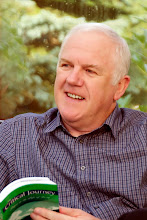Watchmen Nee (1903-72) was one of China’s greatest Christian leaders, controversial to some, but widely respected for his whole-hearted devotion to God and his ability as a Bible teacher. He was given the rather unusual name ‘Watchmen’ because it was his mother’s prayer that he would be one who would warn others of danger or arouse them to opportunity.
Nee was a third generation Christian, converted as an eighteen year old student through the preaching of the itinerant evangelist Dora Yu. At once he saw the implications of his decision to follow Christ, recognising it meant a lifelong obedience to One whose demands were justifiably total.
Shortly after his conversion he left home to spend a year studying the Bible under the guidance of Miss Yu. His love of the Scriptures, and his profound insight into their meaning, characterised his whole life. He returned to his home in Foochow to finish his college studies, and finding a few other young men of faith, quickly formed an evangelistic band to reach out to other students, with great effect.
An Anglican missionary, Margaret Barber, took him under her wing and became a mentor to him. He was both zealous and headstrong as a young man, and it took some straight talking from her to keep him on the right path. He had a great appetite for learning, and devoured her library of Christian writings. In particular, he wanted to understand the cross. Already he had begun home meetings on Sundays where his followers could break bread together and worship God in this informal setting.
His early twenties were a time for proving the faithfulness of God in various ways, and for growing in faith. He believed that if God sends you, he will support you, and lived by the principle ‘give, and it will be given you.’ Time and again he saw God provide for him financially. Having decided to give himself fully to the work of the gospel, he began a series of preaching tours, and learned to trust God to demonstrate his supernatural power to pagan hearers of the message.
Not that everything went smoothly for him. Some of his friends took exception to his preaching style, and perhaps to his independence from the more traditional churches, and asked him to stop attending their house meetings. Although later they acknowledged they had made a mistake, this wounded Nee deeply, causing him to reflect on his ways. He began to realise that the preacher matters to God as much as the preaching, and that God would need to work out in him what he would proclaim through him.
Opportunity came for him to visit Malaya for a preaching trip, providing further opportunity to develop his understanding of the gospel. From his early days he had produced a magazine called Revival, and this provided a platform for him to share with others his ideas and reflections. By his mid twenties his unique approach to the gospel was taking shape.
Part of Nee’s effectiveness as a preacher lay in his ability to make plain that the way to God lies solely through the finished work of Christ. All too many Christians in China were prone to strive after a salvation based on their own good works, an approach little removed from the Buddhism in which they had grown up. In his teaching on Ephesians (published in 1952 as Sit, Walk, Stand) he sought to help his hearers grasp the point that Christianity does not begin with a big DO, but with a big DONE.
Here was a great truth that he had grasped in his own early years as a believer – that the Christian life from start to finish is based upon the principle of utter dependence on Jesus. Having died on the cross for our sins, he sat down at the right hand of God (Hebrews 1:3, Ephesians 1:19), having completed the work of salvation. We are now invited to sit with him (Ephesians 2:6) and to share in the benefits of his finished work.
But what does it mean to ‘sit down’? It means that by faith we are to cease from striving to make ourselves right with God, and instead to rest in what he has done for us at the cross. We are simply to step by faith into the enjoyment of all he has provided for us. ‘It is not that we work for God,’ he says, ‘but that He works for us. God gives us our position of rest. He brings his finished work and presents it to us, and then He says, ‘Please sit’ (ch’eng tso).’
For Nee, the whole of our Christian experience continues on this basis, of not depending on our own work, but always relying on the prior work of God. Every new spiritual experience begins with a new ‘sitting down’. We can receive the Spirit because of the exaltation of Jesus, and the outpouring of the Spirit at Pentecost (Acts 2:33). We are ‘in Christ’ and united with him because of God’s direct action (1Corinthians 1:30). We can be free from sin because we have been crucified with Christ (Galatians 2:20). These are great historic facts, and we enter into them by faith. The Christian life begins with us sitting down.
Friday 25 November 2011
Subscribe to:
Posts (Atom)
